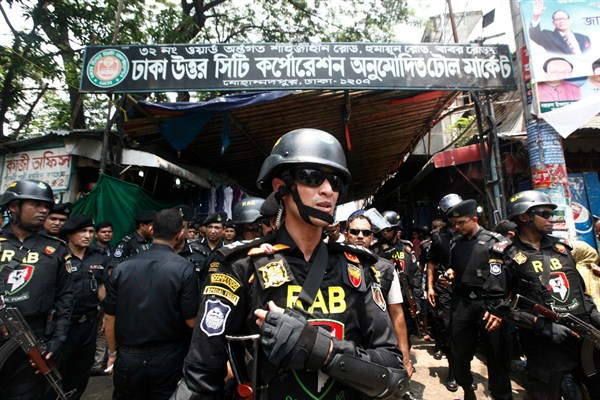Editor’s note: This article is part of an ongoing series about national drug policies in various countries around the world.
In the first two months of an anti-drug campaign launched in May, Bangladeshi police arrested 16,000 accused dealers, leading to cases that resulted in 4,000 convictions, according to the government of Prime Minister Sheikh Hasina. The campaign had also resulted in 138 deaths as of early July, and the death toll has grown since then, alarming human rights activists and spurring comparisons to the brutal anti-drug crackdown in the Philippines. In an email interview, Ali Riaz, distinguished professor of political science at Illinois State University, discusses Bangladesh’s drug abuse problem and the drivers and impact of the current crackdown.
World Politics Review: What is the history of drug abuse as a social problem in Bangladesh, and how have successive governments tried to address it?

